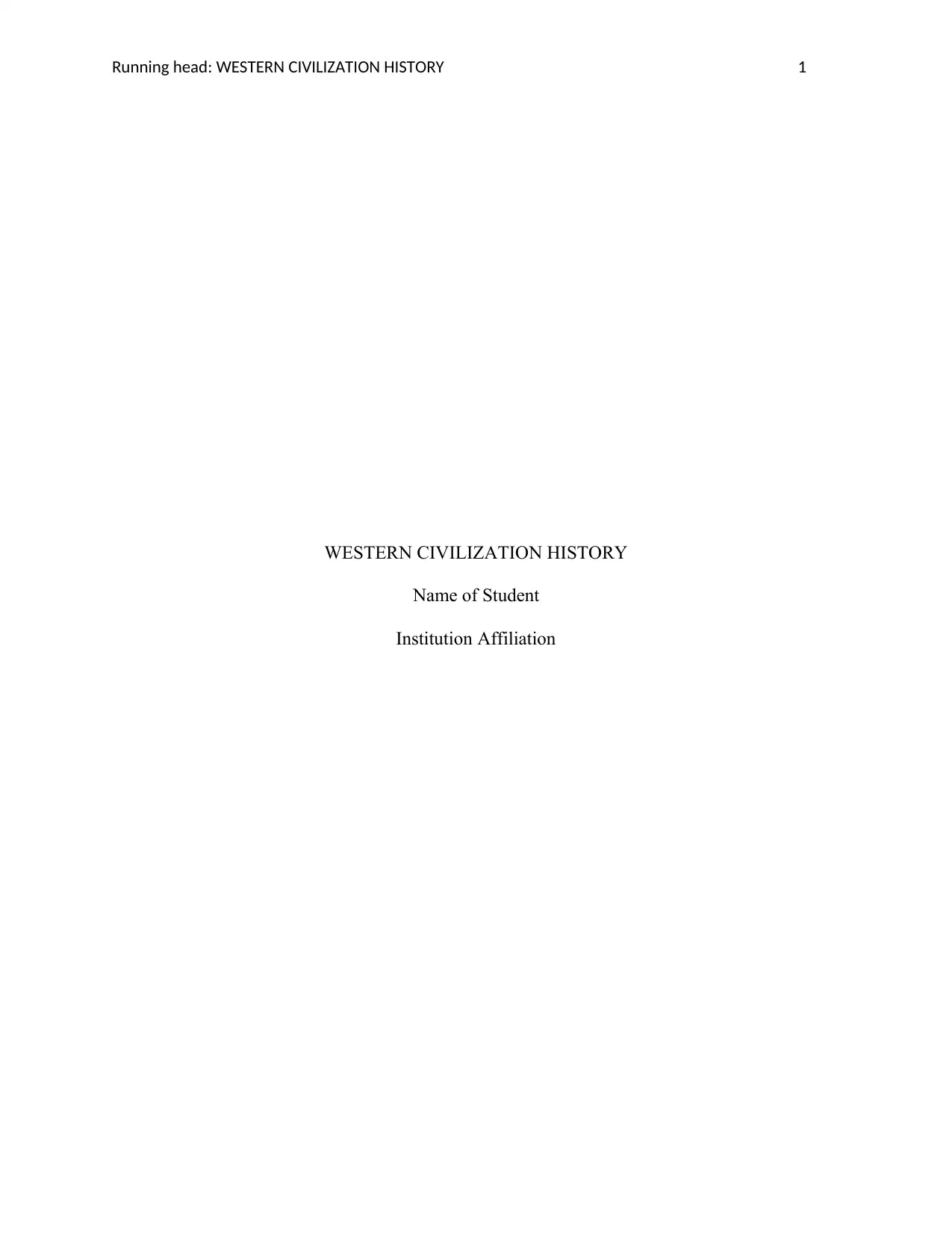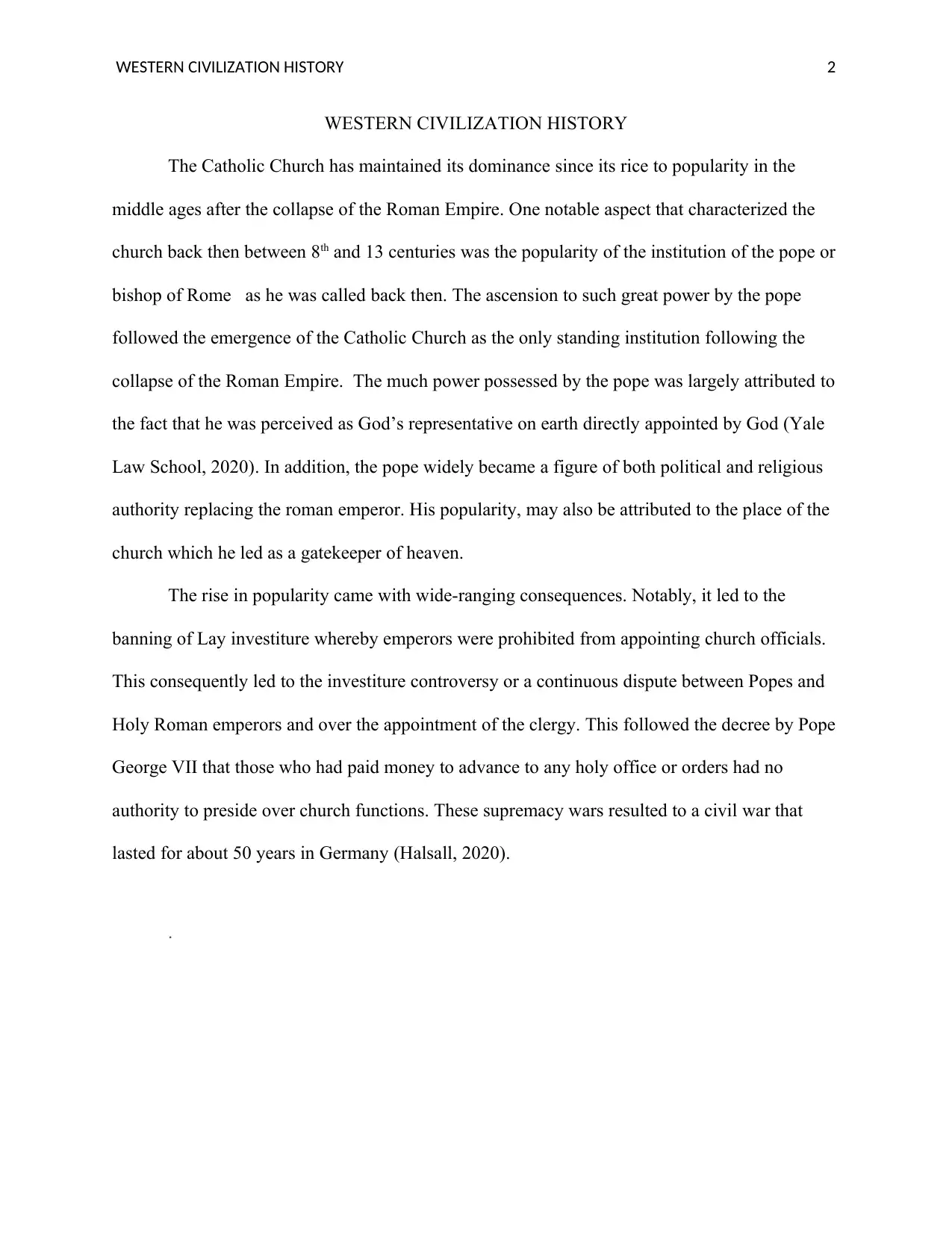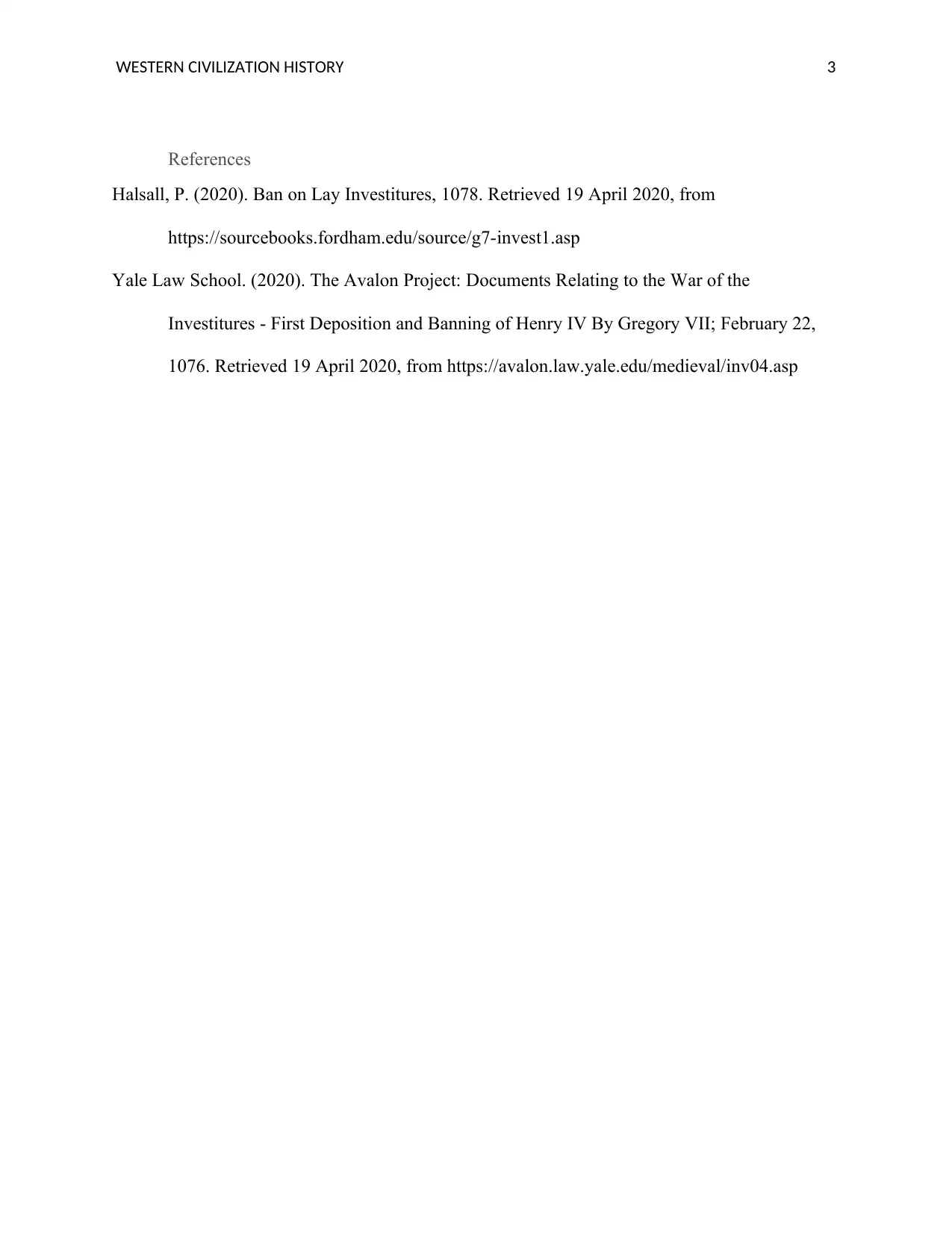Western Civilization History: Analysis of Catholic Church's Dominance
VerifiedAdded on 2022/09/26
|3
|364
|26
Report
AI Summary
This report examines the Catholic Church's rise to prominence following the collapse of the Roman Empire. It focuses on the increasing power of the Pope, who was viewed as God's representative, and the resulting influence on both religious and political spheres. The report highlights the significance of Lay Investiture and the subsequent Investiture Controversy between Popes and Holy Roman emperors. This conflict, stemming from the Pope's decree against simony, led to a civil war in Germany. The report references sources like Fordham University's sourcebooks and Yale Law School's Avalon Project to support its analysis of this historical period. The assignment emphasizes the church's role as a gatekeeper to heaven and the impact of these factors on the church's popularity and influence.
1 out of 3





![[object Object]](/_next/static/media/star-bottom.7253800d.svg)